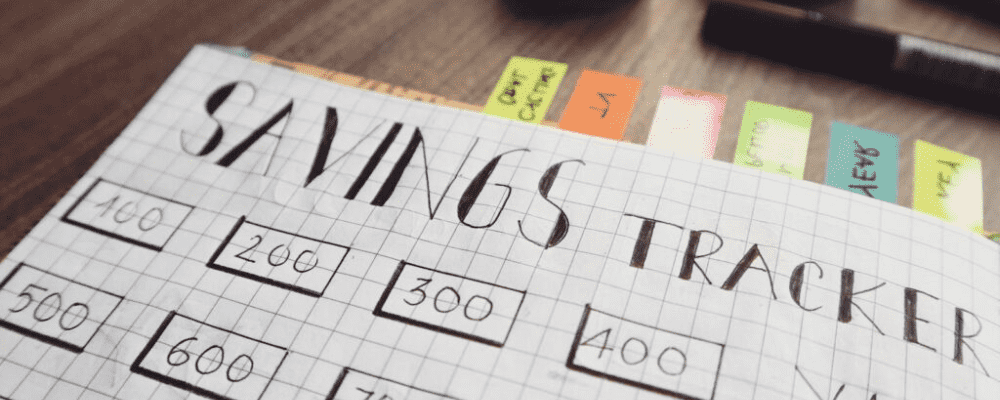Ever felt like you’re walking a tightrope between paying off debt and saving money? Balancing your financial priorities is no easy feat when you’re strapped for cash.
With the rising cost of living, saving money while paying off debt can seem impossible. The struggle is real, but so is the solution.
Why balancing debt and savings is important
Striking the right balance between paying off debt and saving is a financial tightrope that, when mastered, yields a myriad of benefits.
Firstly, by carefully navigating this delicate equilibrium, individuals can steer clear of the perilous cycles of debt that often leave them trapped in a relentless loop of repayments. This proactive approach not only alleviates immediate financial strain but also shields against potential emergencies that may arise.
Moreover, the significance of building financial stability cannot be overstated. A balanced approach allows for the creation of a robust financial foundation, acting as a bulwark against unforeseen circumstances.
This stability provides individuals with a sense of security and control over their financial destinies, reducing the impact of economic uncertainties.
Ultimately, the pursuit of balance between debt repayment and savings contributes to a profound sense of peace of mind. Knowing that both immediate obligations and future financial goals are being addressed concurrently fosters a harmonious relationship with money, promoting overall well-being and confidence in one’s financial journey.
How to start saving while paying down debt

Embarking on the journey to financial equilibrium involves practical steps that seamlessly integrate saving and debt repayment into your daily life. Let’s break it down into manageable, actionable steps.
Step 1: Track spending and create a budget
Begin by understanding where your money goes. Track your spending to identify areas where you can cut back. Crafting a realistic budget empowers you to allocate funds efficiently, ensuring both debt payments and savings find a place in your financial plan.
Step 2: Build an emergency fund
Creating a financial safety net is paramount. Allocate a portion of your income to build an emergency fund. This cushion not only shields you from unexpected expenses but also serves as a buffer, allowing you to tackle debt without compromising your financial security.
Step 3: Pay down high-interest debt
Prioritise high-interest debts to minimise long-term financial strain. By chipping away at these debts, you free up more resources for both immediate and future needs. It’s a strategic move that lays the groundwork for a healthier financial future.
Step 4: Contribute to savings automatically each month
Automation is your ally. Set up automatic transfers to your savings account each month. This ensures a consistent contribution without the hassle, making saving a habitual part of your financial routine. As your savings grow, so does your ability to confront debt with confidence, creating a harmonious blend of financial priorities.
Strategies to accelerate payments
Navigating the path to financial balance involves not just managing, but accelerating debt payments. Here are some effective strategies to fast-track your journey towards financial freedom.
Make biweekly instead of monthly payments
Consider breaking down your monthly payments into biweekly installments. This results in an extra payment each year, helping you chip away at the principal faster. The cumulative effect of this small adjustment can significantly reduce the overall interest paid.
Pay one week before the due date
Timing is crucial. Paying your bills a week before the due date might seem like a simple adjustment, but it can yield substantial benefits. This proactive approach ensures your payments are processed on time, minimising the risk of late fees and positively impacting your credit score.
Apply windfalls directly to debt
Unexpected financial windfalls, such as tax refunds or bonuses, provide an excellent opportunity to make significant strides in debt repayment. Resist the urge to splurge and instead, allocate these windfalls directly towards reducing your outstanding debts. It’s a powerful strategy to expedite your journey to financial balance.
Pick up a side hustle
In today’s gig economy, exploring side hustles has never been easier. Whether freelancing, consulting, or offering a skill, the additional income from a side hustle can be earmarked for debt repayment. This proactive approach not only accelerates your debt payoff but also diversifies your income streams, enhancing overall financial resilience.
By incorporating these strategies, you’re not just paying off debt – you’re strategically balancing your financial priorities, propelling yourself towards a more secure and financially empowered future.
Maintaining motivation and momentum
As you embark on the journey to balancing your financial priorities, keeping motivation high is key to sustained success. Celebrate the small victories – each payment made, every milestone reached. Visualise the finish line; imagine the financial freedom awaiting you.

To stay on track, enlist an accountability partner – someone to share successes and setbacks, providing the encouragement needed to keep moving forward. Remember, achieving financial balance is a marathon, not a sprint.
By maintaining motivation and momentum, you’re not just conquering debt; you’re reshaping your financial narrative for a brighter, more prosperous future.
Now, as you stand atop the mountain of debt conquered, it’s crucial to look ahead and plan for a future of continued financial success.
Make diligent budgeting a lifelong habit, allowing you to allocate funds strategically. Instead of servicing debt, redirect those funds towards building wealth through wise investments. As you forge this new path, relish the peace of mind and financial freedom earned. It’s not just about overcoming debt; it’s about crafting a future where your money works for you, enhancing the quality of your life.
Conclusion
By adopting practical steps, accelerating payments, and maintaining motivation, you’re not just conquering financial challenges; you’re reshaping your financial future.
Looking forward, envision a life free from the shackles of debt, where diligent budgeting becomes second nature, and wealth-building takes precedence over servicing loans. The peace of mind and financial freedom awaiting you are not just aspirations; they are tangible rewards for your dedication.





